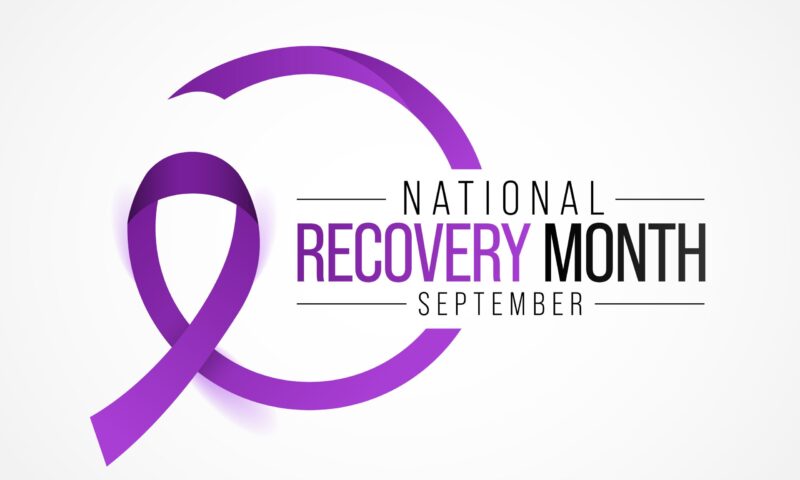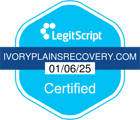Every September, the Substance Abuse and Mental Health Services Administration (SAMHSA) supports an observance called National Recovery Month. It notes that one key aspect of recovery success is choosing to make positive changes in your life, and this action is supported by motivation and purpose. But do you know what your purpose is? If not, what steps can you take to discover it? We have some helpful tips.
Understanding National Recovery Month
As an initiative first launched in 1989, National Recovery Month’s primary goals are to “promote and support new evidence-based treatment and recovery practices, the nation’s strong and proud recovery community, and the dedication of service providers and communities who make recovery in all its forms possible.”
SAMHSA identifies what it calls the “Four Major Dimensions of Recovery”: health, home, purpose, and community. “These are the factors that all individuals need to live healthy, happy, independent lives and reach their full potential.”
Maybe you feel you’re finally turning a corner with your sobriety and regaining your health. You believe you’re a bit more stable in your home life, now, too. And, you might already have a powerful recovery community through a 12-Step program or rehab alumni connections. Now, let’s take a closer look at how SAMHSA defines purpose in recovery, which we provide verbatim:
- Purpose includes meaningful daily activities.
- Employment can support recovery, give a sense of purpose, and a way to provide for yourself and your family.
- Purpose may include a job, school, volunteering, caregiving, or creative pursuits.
- Spirituality can bring a sense of purpose and meaning that helps foster recovery.
- Helping others can bring a great sense of purpose and contribute to recovery.
“Finding purpose in life may be a powerful driver for recovery,” the agency notes.
7 Tips to Help You Discover Your Sense of Purpose
The Greater Good Science Center at the University of California, Berkeley (GGSC) echos SAMHSA’s points about how to find purpose by expanding on them in the following way:
- Identify the things you care about. Researchers suggest answering the following questions about yourself:
- What are you good at?
- What have you done that gave you a skill that can be used for a cause?
- What do you care about in your community?
“By reflecting on these questions…older adults can brainstorm ideas for repurposing skills and pursuing interests developed over a lifetime,” states GGSC.
- Reflect on what matters most. This helps further refine your purpose. Try using a tool like the Valued Living questionnaire to jumpstart ideas.
- Recognize your strengths and talents. You might just now be exploring these aspects of yourself. To help your discovery, another helpful tool to try is a character strengths survey from the VIA’s Institute on Character.
- Try volunteering. Many studies indicate that when you willingly support a cause you truly believe in, it improves your emotional, mental, and physical health, enhances your sense of purpose, and broadens your sober social circle.
- Imagine your best possible self. “There seems to be something about seeing what you truly want for yourself and the world that can help bring you closer to achieving it,” GGSC states. Work with your therapist to set meaningful, actionable goals to help refine your perspective.
- Cultivate positive emotions like awe and gratitude. GGSC researchers discovered that both of these particular emotions are connected to “wellbeing, caring about others, and finding meaning in life, which all help us focus on how we can contribute to the world.”
- Look to people you admire. This could be just about anyone—from a person you know who’s navigated recovery and successfully rebuilt their life as a result, or someone whose actions in the community add to your inspiration to be more involved, or even a friend or a member of your family who’s a guiding light and positive influence.
Use National Recovery Month as the springboard to creating a stronger sense of purpose in sobriety. The GGSC adds that it’s important to be patient: “Given that the search for purpose is likely to represent a long-term, possibly even a lifelong, activity, it is worthwhile to understand how we can engage in the self-exploration process in the most productive and rewarding way possible.”
Find Ideas for Better Living at Ivory Plains
Healing from alcohol and drug misuse involves more than just quitting substances. At our addiction rehabilitation program in Adair, Iowa, you learn through various aspects of your individualized treatment not only who you are, but also how to realize your full potential in sobriety. If this is the approach you’ve longed for, talk to one of our admissions specialists today.








